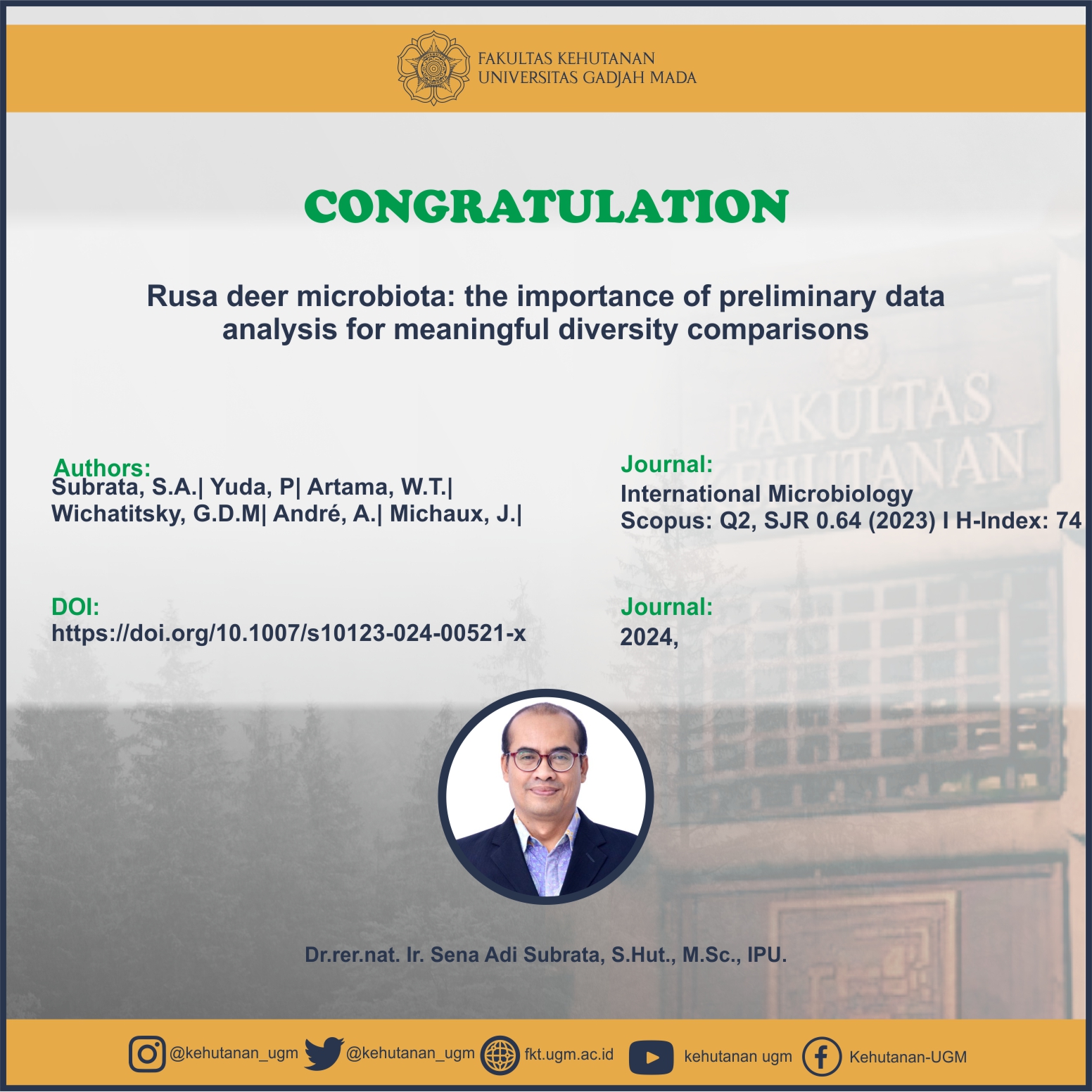
Abstract
The microbiome is an important consideration for the conservation of endangered species. Studies provided evidence of the effect of behavior and habitat change on the microbiota of wild animals and reported various inferences. It indicates the complexity of factors influencing microbiota diversity, including incomplete sampling procedures. Data abnormality may arise due to the procedures warranting preliminary analysis, such as rarefaction, before downstream analysis. This present study demonstrated the effect of data rarefaction and aggregation on the comparison of wild rusa deer’s gut microbial diversity. Eighty-five feces samples were collected from 11 deer populations inhabiting three national parks in Java and Bali islands. Using the Illumina Nova-Seq platform, fragments of 16s rRNA gene were sequenced, and raw data of 51,389 reads corresponding to 2 domains, 22 phyla, 45 classes, 83 orders, 182 families, and 460 genera of bacteria were obtained. Data rarefaction was applied at two different library sizes (minimum and fixed) and aggregation (11 populations into 3 research sites) to investigate its effect on the microbial diversity comparison. There are significant differences in alpha diversity between populations, but not research sites, at all library sizes of rarefaction. A similar finding is also found in beta diversity. Moreover, data rarefaction and aggregation result in different values of the diversity metrics. This present study shows that statistical analysis remains a substantial concern in microbiome studies applied to conservation biology. It suggests reporting a more detailed data normalization in microbiome studies as an inherent control of suboptimal sampling, particularly when involving feces.
SDGs:
1. SDGs 3:Good Health and Well-being
2. SDGs 4:Quality Education
3. SDGs 9:Industry, Innovation, and Infrastructure
4. SDGs 12:Responsible Consumption and Production
5. SDGs 15:Life on Land
Link Dokumen:
Download
